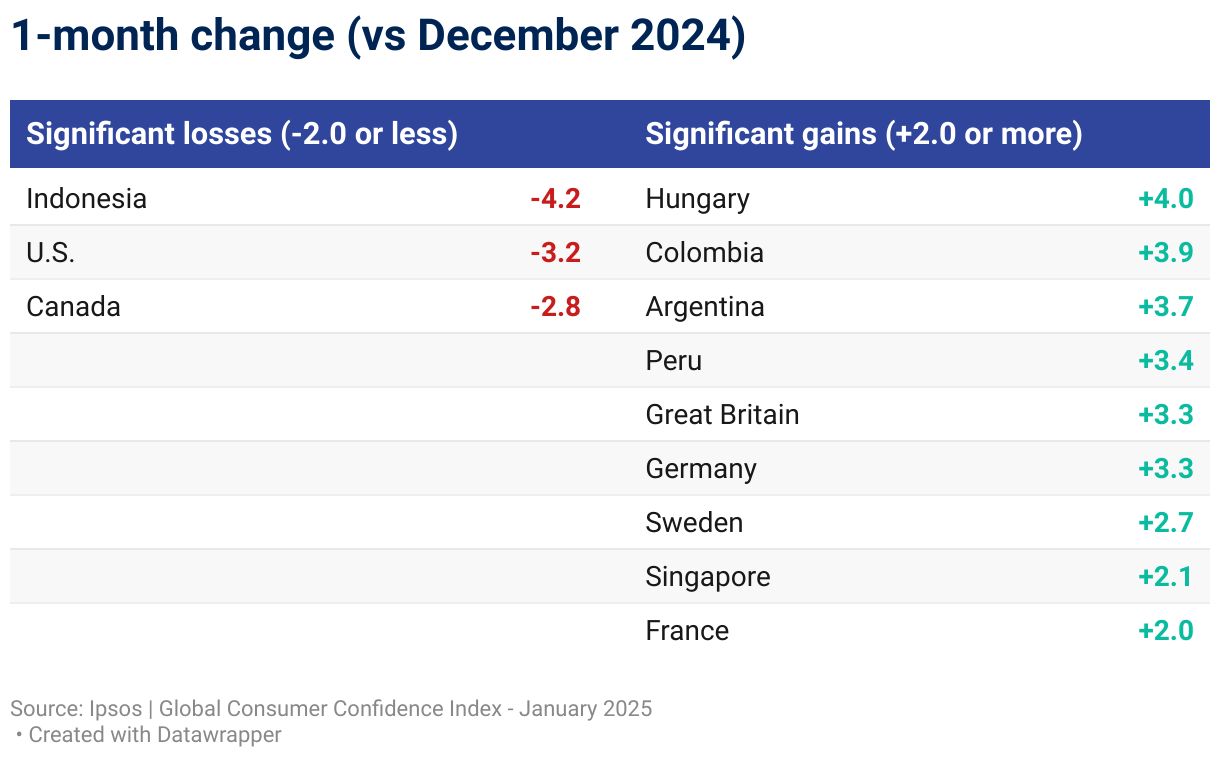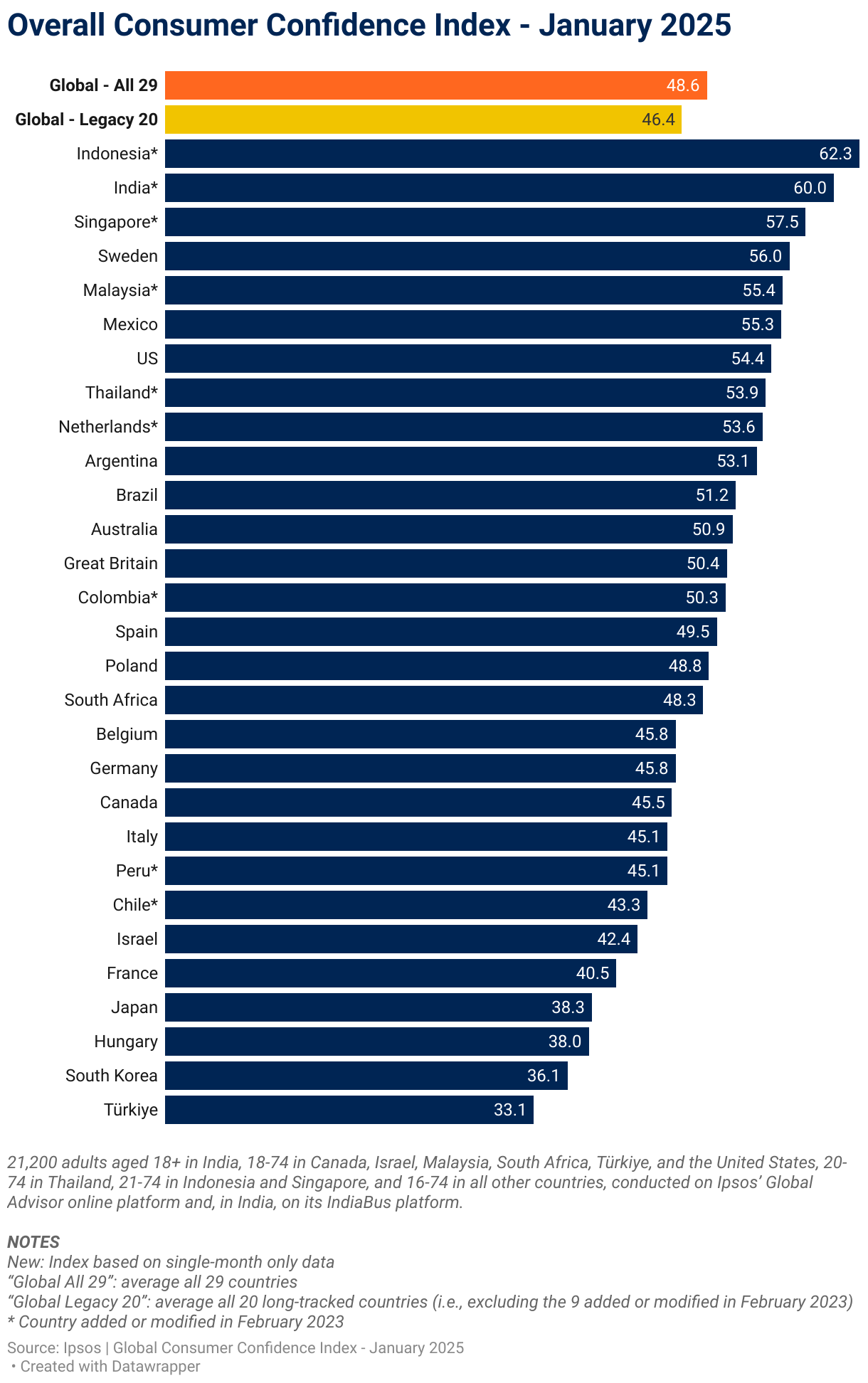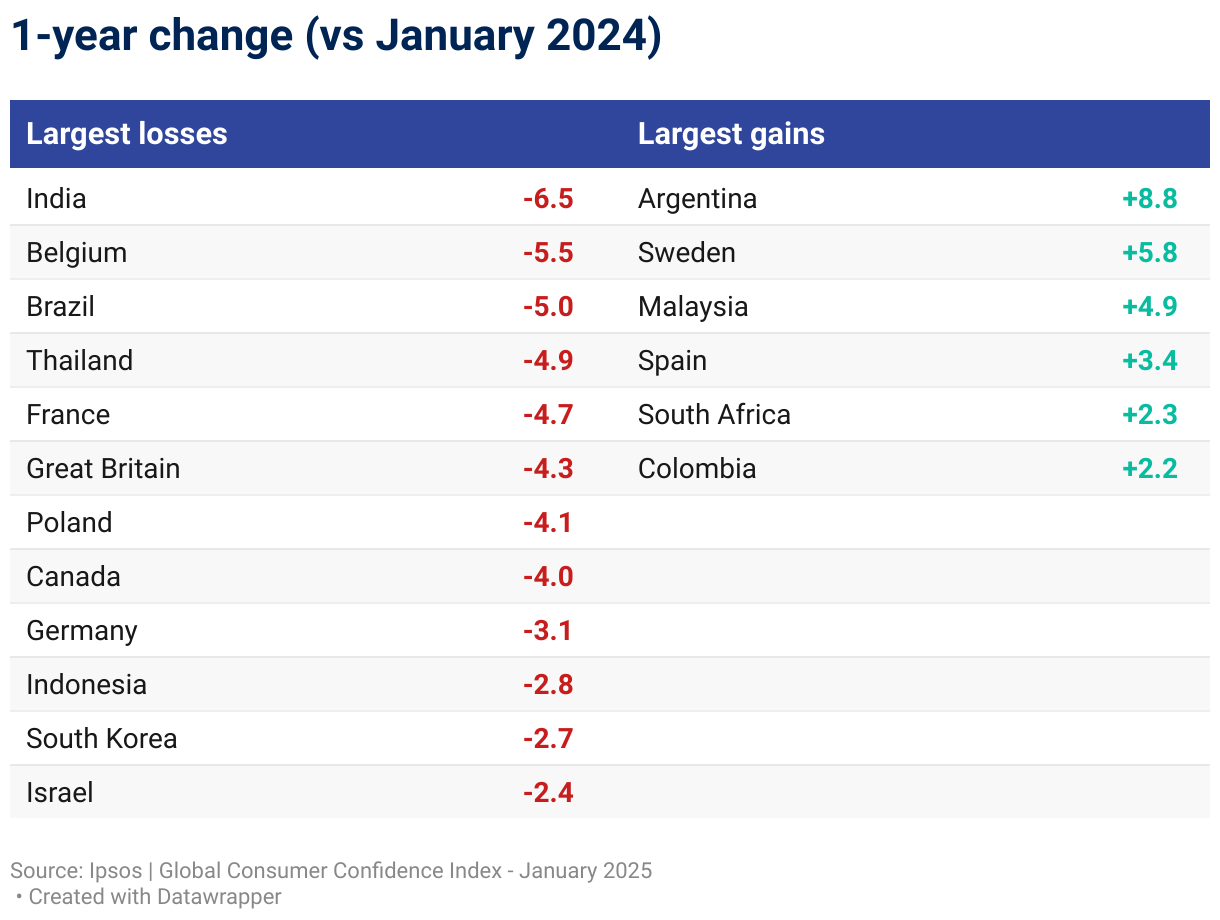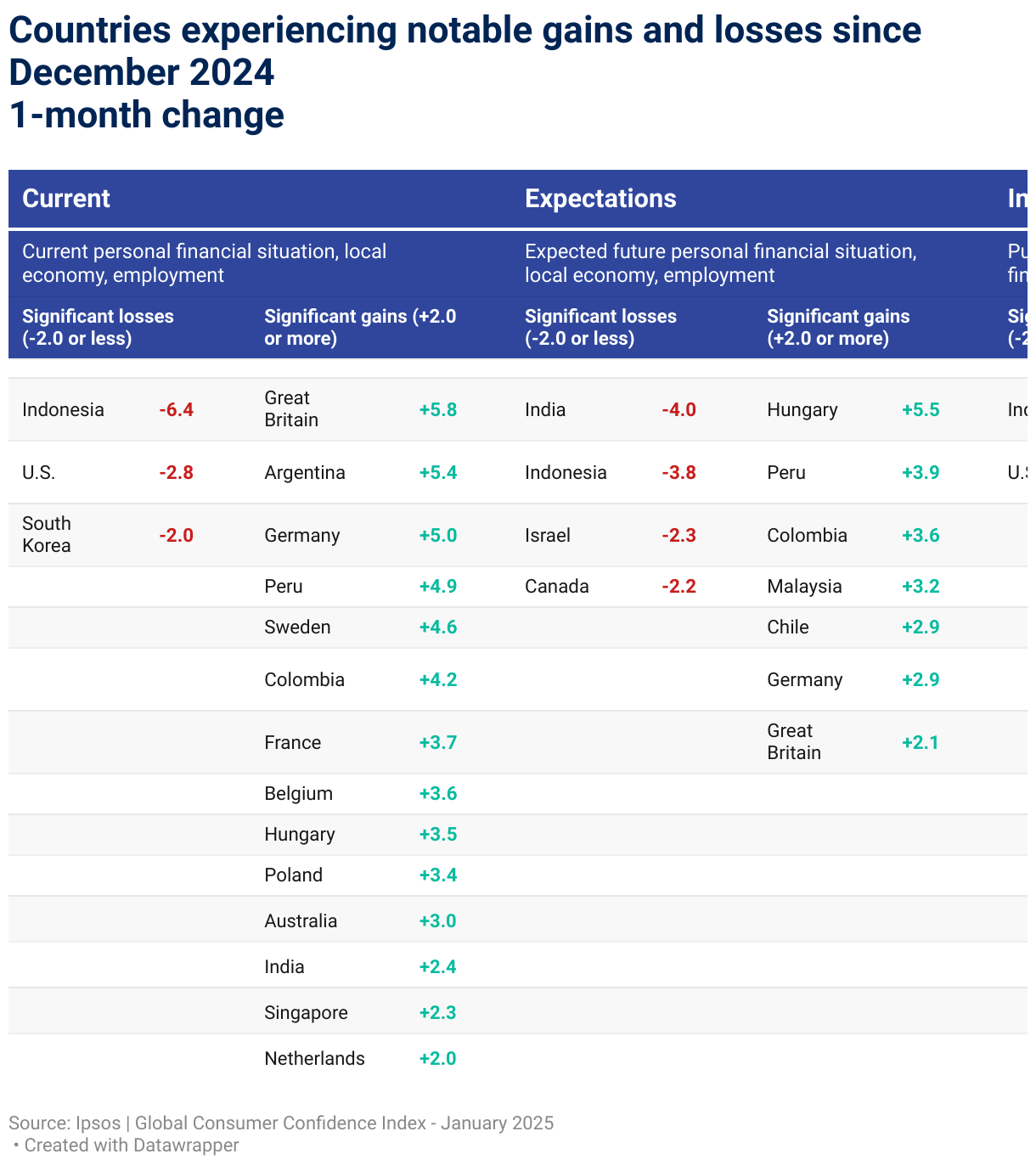January 2025: Consumer confidence up globally to begin 2025
Ipsos’ Global Consumer Confidence Index is up 0.7 point since last month and sits at 48.6. The index reversed last month’s losses and is now 0.7 point lower than its reading from this time last year.
Among 29 economies measured, nine countries show significant gains in consumer sentiment, while just three countries show a notable decline.
Based only on the “legacy 20 countries” tracked since March 2010, the Index would read at 46.4, up 0.6 point since December.
After declining in the previous two months, the Current and Investment indices both show significant gains this month. In contrast, the Expectations and Jobs indices both show stability this month.
Sentiment is up in Latin America. Colombia (+3.9 points), Argentina (+3.7 points) and Peru (+3.4 points) are all up significantly. No Latin American country shows a significant loss this month.
Consumer confidence is also largely up in Europe. Hungary (+4.0 points, Great Britain (+3.3 points), Germany (+3.3 points), Sweden (+2.7 points) and France (+2.0 points) all show significant gains. Similar to Latin America, no European country is down significantly.
In contrast, consumer confidence has declined in North America. The U.S. (-3.2 points) and Canada (-2.8 points) are both down significantly this month.
The Global Consumer Confidence Index is the average of all surveyed countries’ Overall or “National” indices. This month’s installment is based on a monthly survey of more than 21,000 adults under the age of 75 from 29 countries conducted on Ipsos’ Global Advisor online platform. This survey was fielded between December 20, 2024, and January 3, 2025.

Consumer sentiment in 29 countries
Among the 29 countries, Indonesia (62.3) holds the highest National Index score. Indonesia and India (60.0) remain the only countries with a National Index score of 60 or higher.

Twelve other countries now show a National Index above the 50-point mark: Singapore (57.5), Sweden (56.0), Malaysia (55.4), Mexico (55.3), the U.S. (54.4), Thailand (53.9), the Netherlands (53.6), Argentina (53.1), Brazil (51.2), Australia (50.9), Great Britain (50.4), and Colombia (50.3).
In contrast, four countries now show a National Index below the 40-point mark: Japan (38.3), Hungary (38.0), South Korea (36.1), and Türkiye (33.1).
Of note, consumer confidence in Argentina has risen to its highest point since January 2016.
Compared to 12 months ago, twelve countries show a significant drop in consumer sentiment. In contrast, just six countries show a significant increase from January 2024, most of all in Argentina (+8.8 points).

Trends
Ipsos’ Global Consumer Confidence Index (based on all 29 countries surveyed) currently reads at 48.6, up 0.7 point since December. Based only on the “legacy 20 countries” tracked since March 2010, it would read at 46.4.
The Current sub-index, reflecting consumers’ perceptions of the economic climate and their current purchasing, jobs, and investment confidence, shows the largest increase among the sub-indices (+1.5 points) and is now at 39.5. Fourteen countries show a significant month-over-month gain (at least 2 points) in their Current sub-index, while just three countries show a significant loss.
The Investment sub-index, indicative of consumers’ perception of the investment climate, is up 1.4 points and now sits at 41.9. In total, thirteen countries show a significant gain in their Investment sub-index this month, while Indonesia and the U.S. are the only countries to show a significant loss.
The Expectations sub-index, indicative of consumer expectations about future economic conditions, is up an insignificant 0.4 point and is now at 56.7. Seven countries show significant gains in their Expectations sub-index, compared to four countries that show a significant loss.
The Jobs sub-index, reflecting perceptions about jobs security and the jobs market, shows stability for the third consecutive month (-0.1 point) and is now at 57.9. Seven countries show significant gains in their Jobs sub-index, and eight countries show a significant loss.
Of note, no countries show significant losses (of at least 2 points) across all four sub-indices. In contrast, Hungary and Colombia show significant month-over-month gains across all four sub-indices.
Countries experiencing notable gains and losses since December


